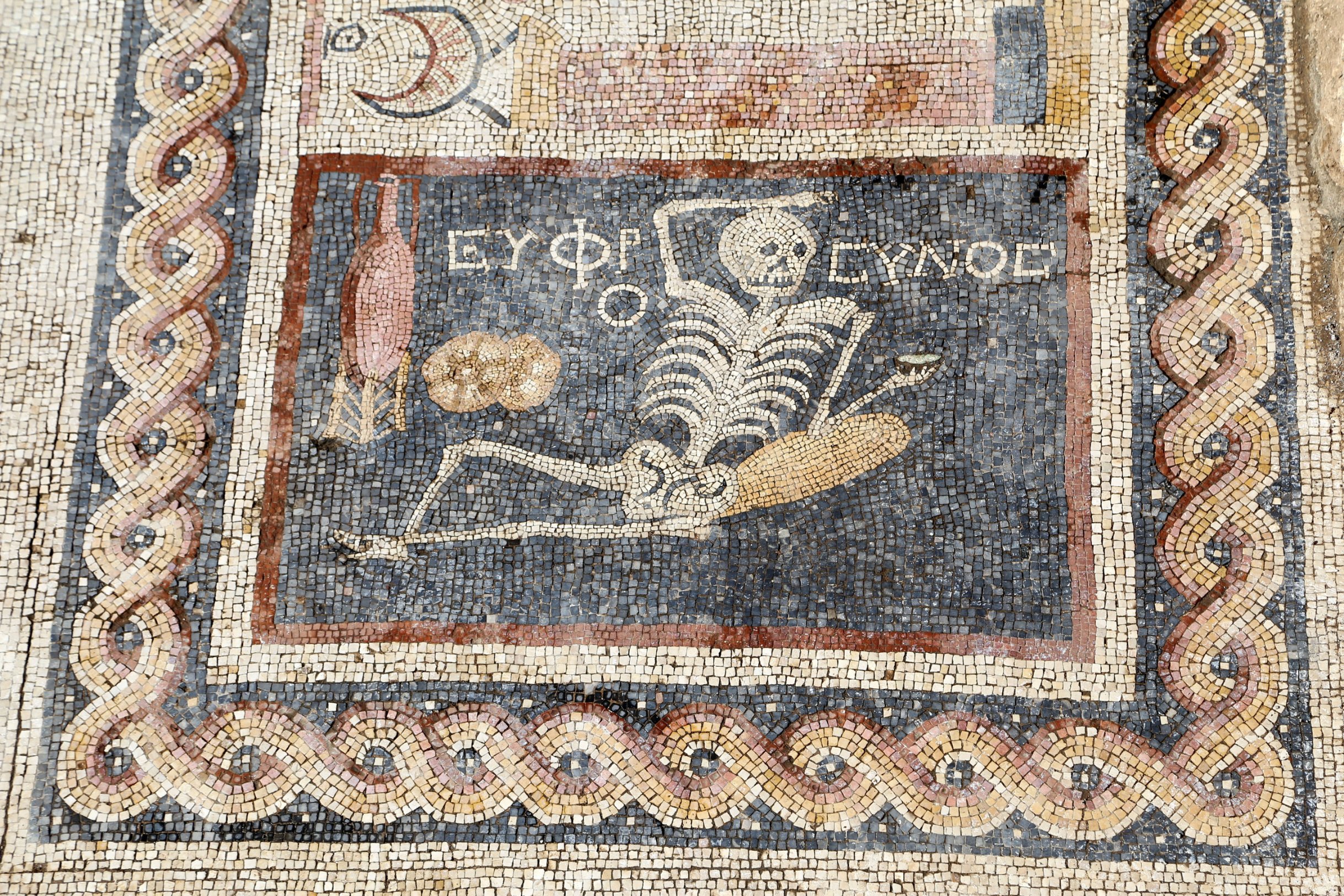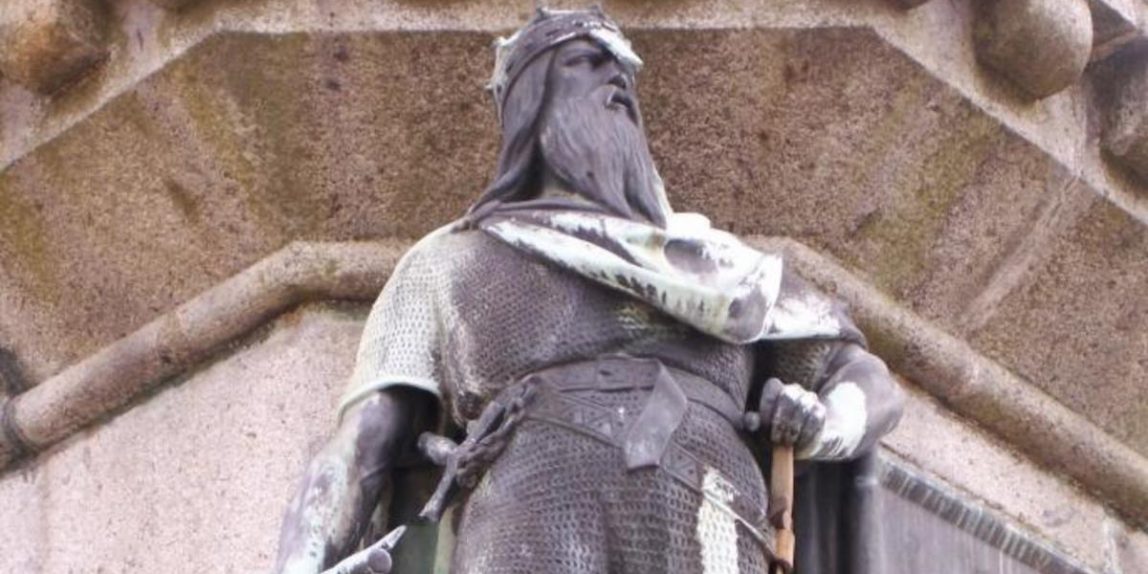“So learn from this
and understand true values. I who tell you
have wintered into wisdom.”
Hrothgar is one of the main characters in the epic poem Beowulf.
He’s king of the Danes, and he’s a pretty cool guy. He builds a great hall where everyone can party hard all night long. Because Danes gonna Dane.
But all the noise wakes up a grumpy monster, who gets out of bed to terrorize the party-goers and devour about 30 of them. That’ll shut ’em up.
Long story short, the great warrior Beowulf comes to Hrothgar’s aid and kills the monster.
Huzzah!
Now the Danes can get back to the party!
But Hrothgar, as the wise old king, has a warning for Beowulf.
Maybe a hero can win lands and treasures. Maybe he can defeat all enemies—even monsters who devour 30 men at once. But the real danger lurks within his own heart:
“A killer stalks him,
an archer who draws a deadly bow . . .
the devious promptings of the demon start.
His old possessions seem paltry to him now.
He covets and resents . . .
and because of good things
that the Heavenly Powers gave him in the past
he ignores the shape of things to come.
Then finally the end arrives
when the body he was lent collapses and falls
prey to its death; ancestral possessions
and the goods he hoarded are inherited by another
who lets them go with a liberal hand.”
Don’t get cocky, Beowulf.
Pride and greed will lead you to reach for more and greater things, even while you hoard what you have, like a dragon, refusing to share your wealth.
Nothing is worth sacrificing your honor and goodness for.
Just so, Alexander the Great and Attila the Hun conquered huge swathes of the known world. But after their deaths, nobody was strong enough to keep their kingdoms together. Their empires fell apart, piece by piece, like bodies torn by jackals.
They achieved so much, driven by ambition and greed. But what they built did not last.
Hrothgar goes on:
“O flower of warriors, beware of that trap.
Choose, dear Beowulf, the better part,
eternal rewards. Do not give way to pride.
For a brief while your strength is in bloom
but it fades quickly; and soon there will follow
illness or the sword to lay you low,
or a sudden fire or surge of water
or jabbing blade or javelin from the air
or repellent age. Your piercing eye
will dim and darken; and death will arrive,
dear warrior, to sweep you away.”
Like dust in the wind.
*
The Danes had a very different society and different values than the Romans, but I think the Stoics would have recognized a kindred spirit in Hrothgar.
“Memento Mori,” said the Stoics—remember that you are going to die.
The Stoics often used that sentiment to remind themselves to enjoy life while it lasted. The mosaic of a skeleton drinking wine comes to mind.

But for all they wanted to enjoy life, I think the Stoics would have applauded Hrothgar’s take on the sentiment. Stay true to your Heroic Code of loyalty and honor; or to the Stoic virtues of courage, justice, temperance, and wisdom.
*
Love,
L
*
PS – Okay, I know the featured image for this post (on the home page) isn’t Hrothgar or Beowulf. I think it’s actually Rollo of Normandy. But I didn’t want to use a still from that weird computer animated 2007 movie. Even though that movie has some good moments.
